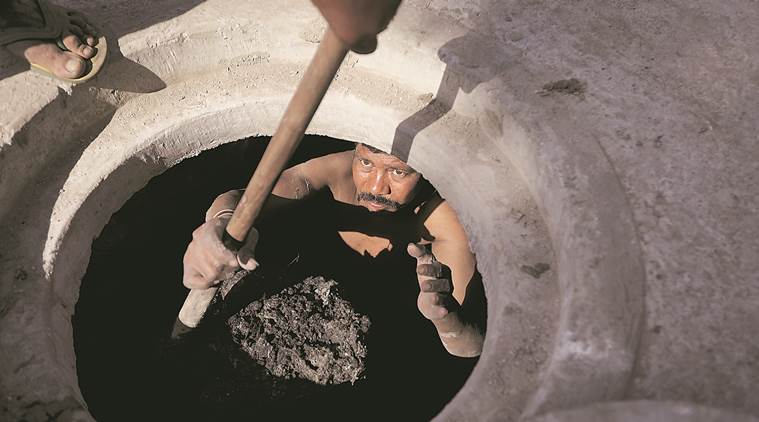
The Ministry of Rural Development (MoRD) has issued orders to all states to use the Socio-Economic Caste Census (SECC) so as to identify persons working as manual scavengers, persons with disabilities, and women-led households as priority beneficiaries for its skilling programme in villages.
In a recent letter, the MoRD has also directed all states to provide a monthly progress report on the skilling of this particular sub-set identified as the most vulnerable and in need of training under the Deen Dayal Upadhyaya Grameen Kaushalya Yojana.
“About 26,000 beneficiaries identified for provision of houses under the Pradhan Mantri Awas Yojana are those who are working as manual scavengers; houses have been provided to 6,000 of them so far. We will start with first imparting skill training to these 26,000 people so that they are rehabilitated in alternative jobs,” said MoRD Secretary Amarjeet Sinha. He added that states have been asked to identify priority beneficiaries and submit the list to the Centre at the earliest.
The SECC has identified a total of 1.82 lakh households where at least one person is employed in manual scavenging in rural India, numbers which have been dismissed as gross underestimate by organisations working in the area. However, when asked to verify these numbers, states confirmed the existence of only 13,000 manual scavengers in rural India.
Skill move only first step
The move to skill those employed in manual scavenging in villages is just the first step. To eradicate this caste-based practice entirely, the government needs to have definitive data on those engaged in this job. Moreover, the Ministry of Housing and Urban Affairs has been completely silent on the matter even as the maximum number of deaths due to cleaning of sewers and septic tanks occur in cities and towns.
Training under the scheme is offered for 411 trades covering 13 major sectors, including apparel, IT, automotive, construction, electronics, security among others. A ministry official said that the project implementing agencies —private or government companies — have to provide training as well as job placement. “These courses designed by the Ministry of Skill Development and Entrepreneurship run from three months to one year. Right now we have beneficiary data on rural Scheduled Caste families but not specifically on those employed in manual scavenging. We have asked states to send us this data…” said the official.